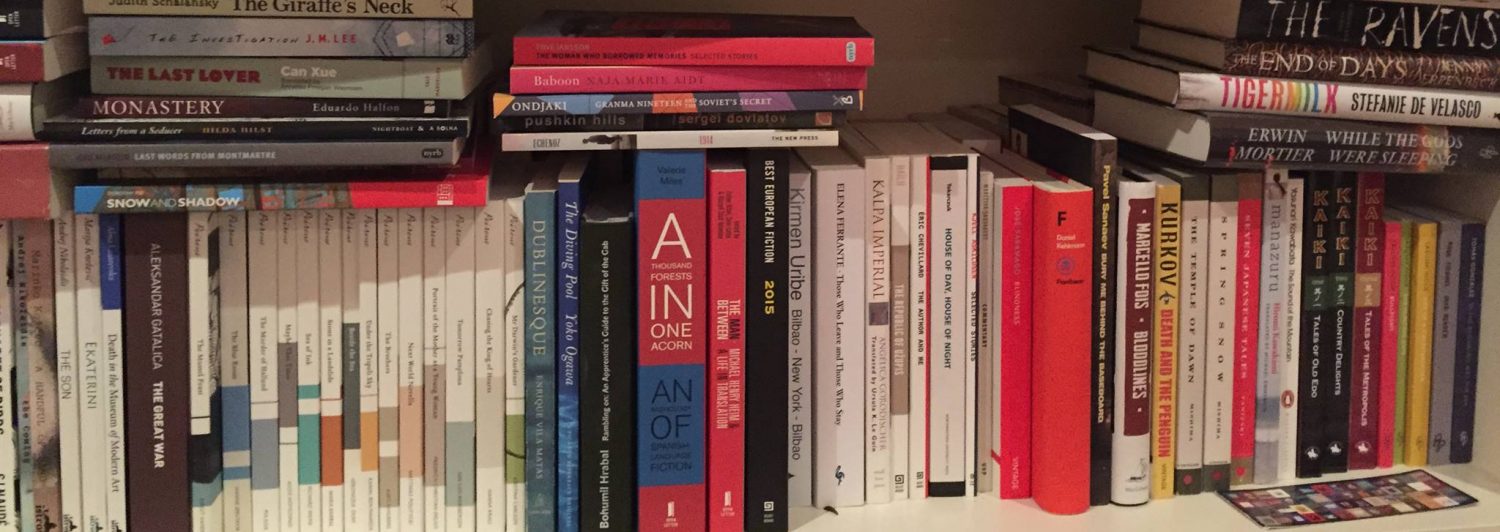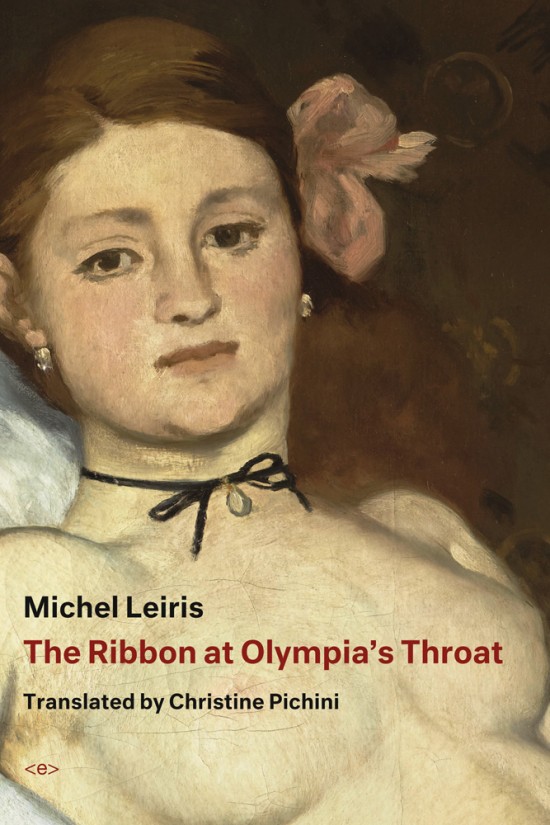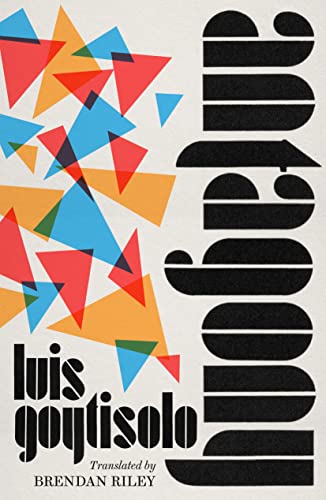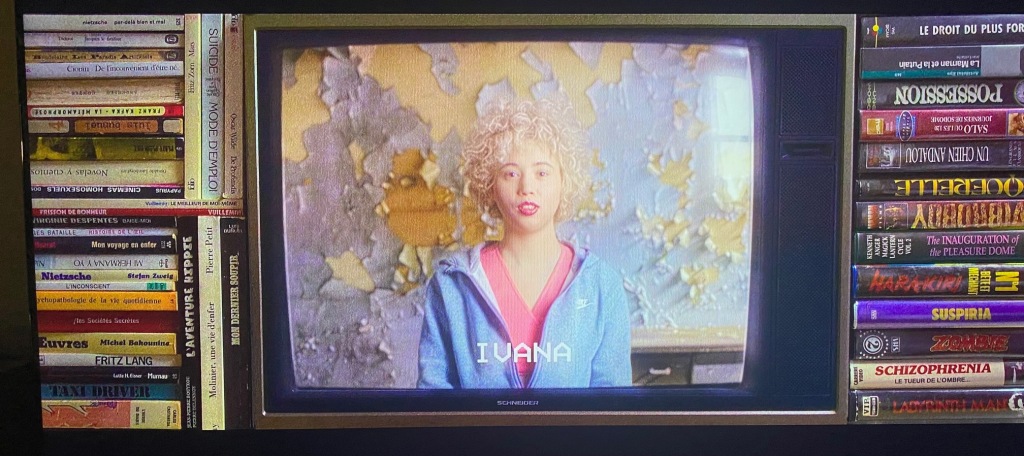
The Republic of Consciousness Prize was established by author Neil Griffiths with £2,000 of his own money to celebrate “small presses producing brilliant and brave literary fiction” in the UK and Ireland. Small presses being defined as having fewer than five full-time employees.
The first Prize was awarded in 2017 to John Keene’s ‘Counternarratives’ (Fitzcarraldo Editions) and subsequent winners have been Eley Williams’ ‘Attrib. and Other Stories’ (Influx Press) in 2018, Will Eaves for ‘Murmur’ (CB Editions) in 2019, Jean-Baptiste Del Amo took home the prize for ‘Animalia’ in 2020, translated by Frank Wynne (Fitzcarraldo Editions), 2021 Jacaranda Books took the main gong for ‘Lote” by Shola von Reinhold, 2022 it was Norman Erikson Pasaribu’s ‘Happy Stories, Mostly’, translated by Tiffany Tsao (Tilted Axis Press) and last year ‘The Doloriad’ by Missouri Williams (Dead Ink Books) won the award.
Yesterday the longlist for the 2024 Prize was announced. Here are those books (listed alphabetically by publisher as the Prize has chosen to do, with the blurbs directly from the publisher, with links to the publisher’s page for the longlisted book):
‘Out of Earth’ By Sheyla Smanioto, Translated by Laura Garmeson & Sophie Lewis (Boiler House Press)
The story follows four generations of female characters as they navigate the hardships of life in the parched landscape of the Brazilian sertão. Male figures are peripheral, but are also revealed as the origin of much of the suffering in the novel, generating for the women a kind of exile not only in relation to the land but to their sense of self. This is a ground-breaking feminist work, a bracing modernist fable, of sorts, formally reminiscent of Eimear McBride’s A Girl Is Half-Formed Thing.
‘Avenues by Train’ By Farai Mudzingwa (Cassava Republic)
The publisher’s website says “coming soon”.
‘Of Cattle and Men’ By Ana Paula Maia, Translated by Zoë Perry (Charco Press)
Animals go mad and men die (accidentally and not) at a slaughterhouse in an impoverished, isolated corner of Brazil.
In a landscape worthy of Cormac McCarthy, the river runs septic with blood. Edgar Wilson makes the sign of the cross on the forehead of a cow, then stuns it with a mallet. He does this over and over again, as the stun operator at Senhor Milo’s slaughterhouse: reliable, responsible, quietly dispatching cows and following orders, wherever that may take him. It’s important to calm the cows, especially now that they seem so unsettled: they have begun to run in panic into walls and over cliffs. Bronco Gil, the foreman, thinks it’s a jaguar or a wild boar. Edgar Wilson has other suspicions. But what is certain is that there is something in this desolate corner of Brazil driving men, and animals, to murder and madness.
‘Truth & Dare’ By So Mayer (Cipher Press)
Cornish mermaids take to the football pitch to protest warming seas. Trans students in Manchester searching for the perfect dick accidentally warp the fabric of spacetime. England’s worst pogrom comes for York’s particle collider, powered by bread and gender energy. On Bournemouth beach, a storm delivers an ancestor across oceans of time to sire a drowning descendant. The devil stands a drink at London’s famous gay pub, The Black Cap, while Artemis, in the guise of Joan of Arc, roams a life-or-death night in East Sussex.
Remember the Witchcraft Act of 1927, and the refugees that fled via cinema to defend the Republic of Catalunya? Of course not, it’s been written out of history. This is England, (but not?) as we know it.
A queer quantum tour through what was, what is, what could have been and may yet still come to pass, in a collection that braids high-wire believe-it-or-not memoir with cutting-edge science fiction (or is it?) from alternate timelines that vibrate very close to ours. Truth or dare? Both, always.
‘Summa Kaotica’ By Ventura Ametller, Translation by Douglas Suttle (Fum d’Estampa Press)
In outrageous, daring prose, Ventura Ametller tells the story of a young boy as he lives through the build-up to and outbreak of the Spanish Civil War. Blending fact and fiction, legend and history, Summa Kaotica is a tour de force, an explosion of language and literature. It is one of the most outstanding, groundbreaking works of art ever written in the Catalan language. The book begins with the discovery of a tattered text belonging to the anti-historian Petter White O’Sullivan, and it is his text that the reader is reading. He tells the story of the creation of Anamorphus, formally Protomorphus, as he begins his life as a spermatozoon, then a foetus, before being born into the village of Poel. From here, we follow his life as he grows up and witnesses – often from a child’s point of view – some of the most important events on the 20th Century.
‘Barcode’ By Krisztina Toth, Translated by Peter Sherwood (Jantar Press)
Krisztina Tóth’s first substantial work in prose after four volumes of remarkable verse, consists of fifteen beautifully written and highly sensual short stories. Most are narrated with poetic intensity and intimacy from a young, unnamed female narrator’s point of view. Whether about childhood acquaintances, school camps and trips, or love and deceit in love, they are all are set against the backdrop of Hungary’s socialist era in its declining years. The stories are carefully strung, like jewels in a necklace, along metaphorical ‘lines’, as in the title of the collection and the subtitle of the pieces. The losses, disappointments, and tragedies great and small recounted here offer nuanced ‘mirrorings’ of the female soul and linger long in the memory.
‘May the Tigris Grieve for You’ By Emilienne Malfatto, Translated by Lorna Scott Fox (Les Fugitives)
Rural Iraq, during the war against the ‘Islamic State’. A pregnancy out of wedlock seals a young girl’s fate. Before and after death, the voices of each family member rise and fall, between fragments of the legend of Gilgamesh and the mythical voice of the Tigris River, who has seen it all.
Uncompromising yet compassionate, May the Tigris Grieve for You reaches into the heart of a society ruled by fathers and sons, a world in which life matters less than honour.
‘My Work’ By Olga Ravn, Translated by Sophia Hersi Smith & Jennifer Russell (Lolli Editions)
After giving birth, Anna is utterly lost. She and her family move to the unfamiliar, snowy city of Stockholm. Anxiety threatens to completely engulf the new mother, who obsessively devours online news and compulsively buys clothes she can’t afford. To avoid sinking deeper into her depression, Anna forces herself to read and write.
My Work is a novel about the unique and fundamental experience of giving birth, mixing different literary forms – fiction, essay, poetry, memoir, and letters – to explore the relationship between motherhood, work, individuality, and literature.
‘The Zekameron’ By Maxim Znak, Translated by Jim & Ella Dingley (Scotland Street Press)
The 100 tales in The Zekameron are based on the 14th century Decameron, but Znak is closer to Beckett than to Boccaccio. Banality and brutality vie with the human ability to overcome oppression. Znak’s stories in different voices chart 100 days in prison in Belarus today. The tone is laconic, ironic; the humour dry. The stories bear witness to resistance and self-assertion and the genuine warmth and appreciation of fellow prisoners.
‘Zekameron’ derives from the Russian word zek, an abbreviation formed by the names of two letters of the Russian Cyrillic alphabet – зк; it stands for zakliuchonny, a word that originally referred to a convict held in a Soviet labour camp. The word now has the general sense of ‘prisoner’.
Born in Minsk in 1981, international lawyer Maxim Znak was arrested in autumn 2020 and sentenced to ten years in prison in 2021. He is in prison in Belarus and is recognised by Amnesty as a prisoner of conscience. Znak wrote these stories from within prison, and they later found their way outside the prison walls.
The stories were sent directly to Jim Dingley who previously translated two books from Belarus for Scotland Street Press. Dingley immediately sent the manuscript to Scotland Street Press. Its arrival was a huge consideration: would its publication endanger Znak’s life, or agitate successfully for his release? By September 2021 this brilliant lawyer was already re-sentenced to ten years in a penal colony in the north of Belarus. His wife and sister urged us to go ahead with publication.
‘The End of August’ By Yu Miri, Translated by Morgan Giles (Tilted Axis Press)
In 1930s Japanese-occupied Korea, Lee Woo-Cheol was a running prodigy and a contender for the upcoming Tokyo Olympics. But he would have had to run under the Japanese flag.
Nearly a century later, his granddaughter, living in Japan, is training to run a marathon herself. She seeks the power of Korean Shamans, to summon the spirit of Lee Woo-Cheol, immersing herself into the painful histories of her family and the Korean and Japanese communities of Miryang, Korea. In rhythmic and breathless prose, Morgan Giles’ translation explores the emotion and the everyday of generational trauma, war and oppression.
The End of August is a semi-autobiographical investigation into nationhood and family – what you are born into and what is imposed. Through a meditative dance of generations, Yu Miri moves across borders and time, shedding light onto the experiences of Japan’s Zainichi (second- and third- generation Korean) communities.
The prize fund is spread across the prize cycle, with each of the longlisted presses receiving £500. The 5 shortlisted presses will receive a further £1,000 each, with 25% to the writer. As always, the winner gets nothing more.
The shortlist will be announced on 11 March 224 with the winner announced on 17 April 2024.
The Prize is funded through subscriptions, and joining their “Book of the Month” club helps to fund future awards, you receive 12 titles per year and can join here.








